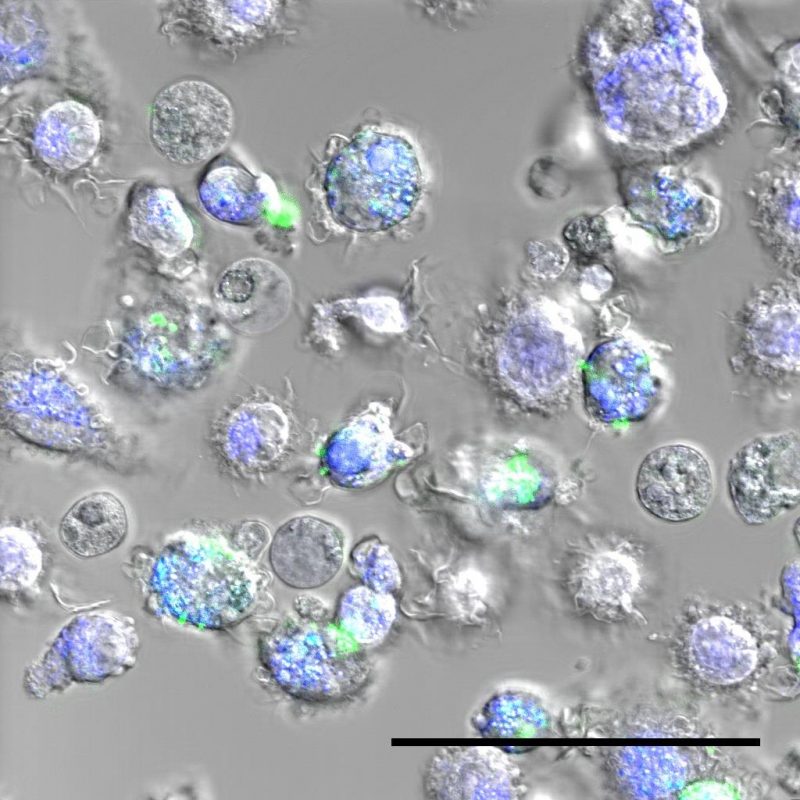Newsletter Signup - Under Article / In Page
"*" indicates required fields
Swiss and German scientists have engineered spider-silk microparticles that can be used to protect a vaccine particle, allow it to enter immune cells and trigger T-cell immunity without toxic effects.
The team, partnered by AMSilk — the German biotech behind Adidas’ biodegradable shoes, hopes their technique will allow more targeted and stable vaccines against difficult targets like cancer and infectious diseases such as tuberculosis, which require a T-cell response.
When designing vaccines, it is harder to induce T-cell than B-cell immunity as the process is more complex. Essentially, a small protein fragment must be injected as part of a T-cell vaccine and this is normally quickly destroyed by the body’s natural defense systems.
As described in the journal Biomaterials, the new technique tackles the issue of how to get round this problem by protecting the vaccine in a small bubble of engineered spider silk cells. The researchers focused on this material as it is highly resistant to breakdown from light and heat — the particles can withstand more than 100℃ for several hours — and is also non-toxic and biocompatible.

The researchers injected the microparticles, containing a demo ‘vaccine’ particle, into mice to test how their immune system reacted. They found that following the test vaccination, they could show a strong T-cell immune reaction in response to reintroducing the ‘disease particle’ into the mice. Notably, this was in the absence of an adjuvant, an addition to most vaccines that increases their activity, and no signs of toxicity were seen in the animals.
While not all vaccines require T-cell immunity to be triggered, it’s key in some cases. “To develop immunotherapeutic drugs effective against cancer, it is essential to generate a significant response of T lymphocytes,” said Carole Bourquin, University of Geneva, who directed this work. “As the current vaccines have only limited action on T-cells, it is crucial to develop other vaccination procedures to overcome this issue.”
The scientists concede that particle size could be a stumbling block, as they have yet to try and incorporate the larger antigen particles used in standard vaccines into the spider-silk microparticles.
This research is at an early stage, but as co-founder of AMSilk Thomas Scheibel (University of Bayreuth) is a co-researcher in this project and a named author on the paper it is likely that the company will wish to follow up with this technology in the hope that it can add it to its product list in the future.
The versatile properties of spider-silk have attracted the interest of a number of research groups and biotech companies around the world in addition to AMSilk and have been used to help produce musical instruments and antibiotic releasing materials, among others.
Other companies getting in on the action include US-based Bolt Threads and Kraig Biocraft Laboratories and Japanese Spiber are also actively working on products using spider silk, as well as Oxford University spin-off Oxfordbiomaterials in the UK.
Partnering 2030: FME Industries Report







